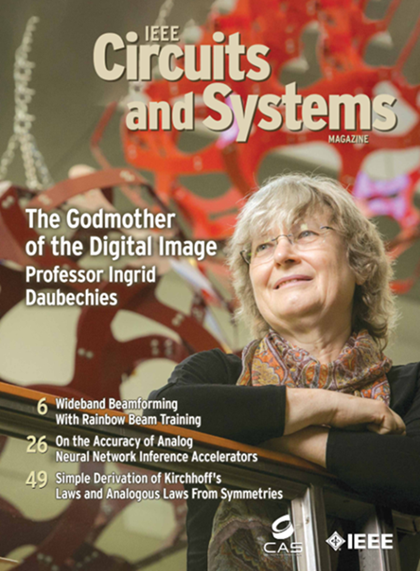NISQ 量子计算:以安全为中心的教程和调查 [特写]
IF 5.6
2区 工程技术
Q1 ENGINEERING, ELECTRICAL & ELECTRONIC
引用次数: 0
摘要
量子计算(QC)在解决经典难题方面展现了巨大的理论前景。最近,包括硬件、软件和算法在内的整个量子计算系统堆栈的投资和进步凸显了从理论探索到实际应用实现的关键转变。尽管取得了这一进展,但目前的重点主要集中在性能提升上,往往忽略了安全性方面的考虑。针对这一差距,我们的文章提供了全面的教程和调查,旨在识别量子计算系统固有的漏洞并对其进行分类。首先,我们概述了量子计算系统堆栈的基本原理、生态系统组件和独特属性,并总结了开发资源,以促进该领域的高效启动。在这些基础知识的基础上,我们介绍了按受害层和安全攻击目标分类的量子计算安全分类法。文章以该分类法为指导框架,广泛介绍了量子计算安全领域的最新进展,其总体目标是让读者全面了解量子计算系统原理,并对各种动态的量子计算安全威胁有一个知情的认识。文章的目的是让行业利益相关者和研究团体都能从中受益,最终达到主动识别和减轻量子计算系统内的安全问题,从而为安全的量子计算环境奠定坚实的基础。本文章由计算机程序翻译,如有差异,请以英文原文为准。
NISQ Quantum Computing: A Security-Centric Tutorial and Survey [Feature]
Quantum computing (QC) demonstrates substantial theoretical promise in addressing classically intractable problems. Recent investments and advancements across QC system stacks, including hardware, software, and algorithms, underscore a pivotal shift from theoretical exploration to the practical realization of applications. Despite this progress, the prevailing emphasis has predominantly centered on performance enhancement, often overlooking security considerations. In response to this gap, our article presents a comprehensive tutorial and survey aimed at identifying and categorizing vulnerabilities inherent in quantum computing systems. Beginning with an overview encompassing essential principles, ecosystem components, and unique attributes in the quantum computing system stack, we also provide a summary of development resources to facilitate efficient initiation in this domain. Building on this foundational knowledge, we introduce a taxonomy of QC security organized by victim layer and security attack objectives. Utilizing this taxonomy as a guiding framework, the article delivers an extensive survey of the latest advancements in QC security, with the overarching goal of equipping the reader with a comprehensive understanding of quantum computing system principles and an informed awareness of diverse and dynamic QC security threats. The intention is to benefit both industry stakeholders and research communities, ultimately aiming to proactively identify and mitigate security concerns within QC systems, thereby establishing a robust foundation for secure quantum computing environments.
求助全文
通过发布文献求助,成功后即可免费获取论文全文。
去求助
来源期刊

IEEE Circuits and Systems Magazine
工程技术-工程:电子与电气
CiteScore
9.30
自引率
1.40%
发文量
34
审稿时长
>12 weeks
期刊介绍:
The IEEE Circuits and Systems Magazine covers the subject areas represented by the Society's transactions, including: analog, passive, switch capacitor, and digital filters; electronic circuits, networks, graph theory, and RF communication circuits; system theory; discrete, IC, and VLSI circuit design; multidimensional circuits and systems; large-scale systems and power networks; nonlinear circuits and systems, wavelets, filter banks, and applications; neural networks; and signal processing. Content also covers the areas represented by the Society technical committees: analog signal processing, cellular neural networks and array computing, circuits and systems for communications, computer-aided network design, digital signal processing, multimedia systems and applications, neural systems and applications, nonlinear circuits and systems, power systems and power electronics and circuits, sensors and micromaching, visual signal processing and communication, and VLSI systems and applications. Lastly, the magazine covers the interests represented by the widespread conference activity of the IEEE Circuits and Systems Society. In addition to the technical articles, the magazine also covers Society administrative activities, as for instance the meetings of the Board of Governors, Society People, as for instance the stories of award winners-fellows, medalists, and so forth, and Places reached by the Society, including readable reports from the Society's conferences around the world.
 求助内容:
求助内容: 应助结果提醒方式:
应助结果提醒方式:


